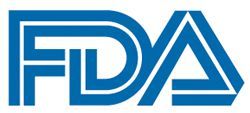News
Article
FDA Grants Accelerated Approval to Liso-Cel for Relapsed/Refractory Follicular Lymphoma
Author(s):
Key Takeaways
- Lisocabtagene maraleucel received FDA accelerated approval for relapsed/refractory follicular lymphoma after two or more prior therapies.
- The phase 2 TRANSCEND-FL trial showed a 95.7% overall response rate and a 94% complete response rate.
The FDA has granted accelerated approval to lisocabtagene maraleucel for the treatment of select adult patients with relapsed or refractory follicular lymphoma.
FDA

The FDA has granted accelerated approval to lisocabtagene maraleucel (liso-cel; Breyanzi) for the treatment of adult patients with relapsed or refractory follicular lymphoma who have received 2 or more prior lines of systemic therapy.1
The regulatory decision was supported by data from the phase 2 TRANSCEND-FL trial (NCT04245839), which showed that liso-cel (n = 94) elicited an overall response rate (ORR) of 95.7% (95% CI, 89.5%-98.8%). At a median follow-up of 16.8 months (95% CI, 16.3-17.0), patients experienced a median duration of response that was not reached (NR; 95% CI, 18.04-NR).
The open-label, multicenter, single-arm trial enrolled patients with relapsed or refractory follicular lymphoma who received 2 or more lines of systemic therapy, including an anti-CD20 antibody and an alkylating agent. Patients also needed to have adequate bone marrow function to receive lymphodepleting chemotherapy, as well as an ECOG performance status of 0 or 1.
Patients were excluded if they had evidence or a history of composite diffuse large B-cell lymphoma and follicular lymphoma, or transformed follicular lymphoma; a WHO subclassification of duodenal-type follicular lymphoma; central nervous system–only involvement by malignancy; or prior CAR T-cell therapy or other genetically-modified cell therapy.2
After T cells were collected, patients underwent lymphodepletion consisting of fludarabine at 30 mg/m2 per day and cyclophosphamide at 300 mg/m2 per day for 3 days. Two to 7 days after the completion of lymphodepleting chemotherapy, patients then received liso-cel at a target dose of 100 x 106 CAR-positive T cells.
ORR served as the trial's primary end point. Secondary end points included complete response (CR) rate, DOR, progression-free survival (PFS), overall survival, and safety.
Data from TRANSCEND-FL presented at the 17th Annual International Conference on Malignant Lymphoma showed that in efficacy-evaluable patients with relapsed/refractory follicular lymphoma who were treated in the third line and beyond (n = 101), liso-cel generated an ORR of 97% (95% CI, 91.6%-99.4%; P <.0001). Furthermore, the CR rate was 94% (95% CI, 87.5%-97.8%; P <.0001). At 12 months, responses were ongoing in 81.9% of patients.3
At a median follow-up of 17.5 months, the median PFS was NR, and the 12-month PFS rate was 80.7%.
Regarding safety, the most common nonlaboratory adverse effects reported in at least 20% of patients included cytokine release syndrome, headache, musculoskeletal pain, fatigue, constipation, and fever.1
The recommended dose for liso-cel is 90 × 106 to 110 × 106 CAR-positive T cells with a 1:1 ratio of CD4 and CD8 components.
References
- FDA grants accelerated approval to lisocabtagene maraleucel for follicular lymphoma. FDA. May 15, 2024. Accessed May 15, 2024. https://www.fda.gov/drugs/resources-information-approved-drugs/fda-grants-accelerated-approval-lisocabtagene-maraleucel-follicular-lymphoma
- A study to evaluate the efficacy and safety of JCAR017 in adult subjects with relapsed or refractory indolent B-cell non-Hodgkin lymphoma (NHL) (TRANSCEND FL). ClinicalTrials.gov. Updated November 30, 2023. Accessed May 15, 2024. https://classic.clinicaltrials.gov/ct2/show/NCT04245839
- Bristol Myers Squibb’s Breyanzi (lisocabtagene maraleucel) delivers deep and durable responses in relapsed or refractory follicular lymphoma and mantle cell lymphoma in TRANSCEND clinical trials presented at ICML 2023. News release. Bristol Myers Squibb. June 17, 2023. Accessed May 15, 2024. https://news.bms.com/news/corporate-financial/2023/Bristol-Myers-Squibbs-Breyanzi-lisocabtagene-maraleucel-Delivers-Deep-and-Durable-Responses-in-Relapsed-or-Refractory-Follicular-Lymphoma-and-Mantle-Cell-Lymphoma-in-TRANSCEND-Clinical-Trials-Presented-at-ICML-2023/default.aspx








